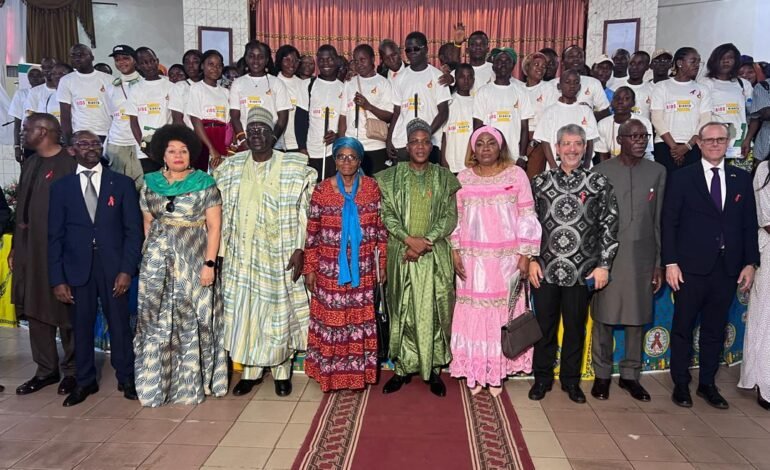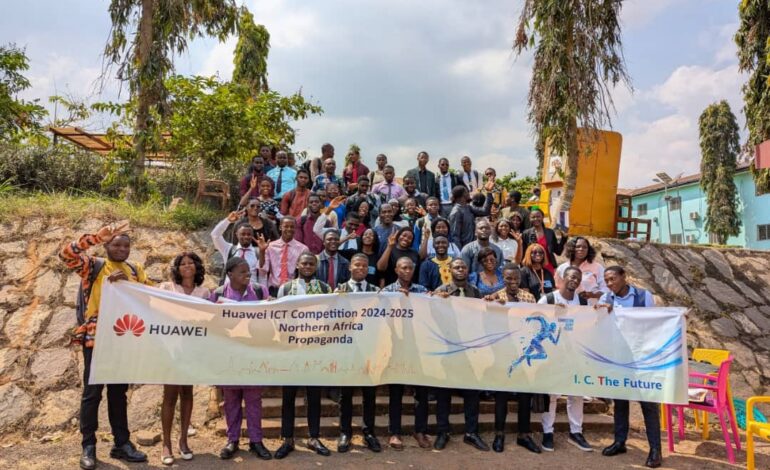This was during a two-day workshop held from December 3 to 4, 2024 in Yaounde, Cameroon.

The two-day workshop, organized by the National AIDS Control Committee(NACC) in collaboration with the Ministry of Public Health, took place from December 3rd to 4th, 2024, in Yaounde, under the theme “Implementing Priority Interventions towards AIDS Elimination in Cameroon.”
The event described as the first of its kind in the history of the National AIDS Control Committee, came in as one of the key activities of the Cameroonian month against AIDS, a few days after the commemoration of World AIDS Day observed every 1st of December.
As underscored by the Minister of Public Health who presided over the opening ceremony of this scientific “rendez-vous”, this workshop that brought together government officials, researchers, health experts, leaders of community-based organizations, and peer educators, just to name these few, was aimed at informing and mobilizing the scientific community, decision-makers, implementers, community organizations, and the population about scientific advancements and their strategic application to strengthen the national response.
In his key address, Minister Manaouda Malachie who doubles as the president of the National AIDS Control Committee, made the genesis of the emergence of HIV in the early 1980s creating a global crisis that was later controlled with the advent of antiretroviral drugs in 1996.
“Today, thanks to scientific advancements, people living with HIV can control the virus, improve their quality of life, and prevent its transmission. Despite these advances, HIV remains a major public health challenge. In this context, achieving the elimination of AIDS as a public health emergency by 2030 has become a humanitarian and societal imperative…”
According to Dr. Manaouda Malachie, several challenges are still at our doorsteps, and need for dynamic and collective measures to uplift them. He pointed out key challenges such as inequalities in care, discrimination, and stigmatization.
The Minister said: “In recent years, research on HIV has led to significant advancements in several essential areas: In prevention: the improvement of protection tools, including the PMTCT option B+, pre-and post-exposure prophylaxis in Cameroon, as well as condoms; In treatment: the development of innovative therapies, including long-acting molecules that reduce stigma and improve adherence; In research: the exploration of new strategies to prevent vertical transmission of HIV and to block the variability of the virus, which is the source of resistance. In light of the persistent challenges, it is crucial to: Strengthen access to services for key and vulnerable populations; Reduce inequalities in care by combating discrimination; and Integrate the concepts of comorbidities, aging, and mental health. Translate all these scientific advancements into concrete actions on the ground.”
He went further to challenge the different participants at the workshop to develop new approaches that will foster the fight against HIV/AIDS in Cameroon.
“Transforming HIV from a deadly and urgent disease into a manageable chronic condition is a major victory. On the path to elimination, I encourage you to push your reflections on ambitious approaches such as new long-acting prevention and treatment tools, and strategies to achieve the 10-10-10 goals aimed at reducing stigma, discrimination, and gender-based violence to less than 10%. These goals are ambitious but achievable to preserve our gains and accelerate our progress.” He said.
To conclude his statement, he said: “This first edition of the Scientific Days of the CNLS is a unique opportunity to consolidate our multilateral and multidisciplinary cooperation towards sustainability. I urge you to engage in constructive exchanges and make relevant recommendations. I wish you fruitful discussions and remain confident that the conclusions of these days will contribute to strengthening our collective response to HIV towards elimination.”
Pr. Zoung-Kanyi Bisseck Anne-Cecile was granted the floor on behalf of the research committee that actively participated in this two-day session.
The female pioneer researcher said, “Our mission is to support the dissemination of research work, provide support to the National AIDS Control Committee for decision-making on the results of the research in the field, and apply epidemiological and scientific evaluations…”
In her further explanations, Pr. Zoung-Kanyi Bisseck Anne-Cecile outlined that, the consultative body will be of crucial support to NACC by coordinating scientific research and findings and in helping to translate evidence into palpable policies.
Speaking during the session, Dr. Fokam Joseph, Permanent Secretary of NACC made a few emphases on the pediatric surge which is aimed at identifying thousands of children living with HIV in Cameroon and linking them to life-saving treatment.
The Permanent Secretary of NACC believes the national pediatric surge operation is an innovative approach to tackle HIV/AIDS at its roots.
The fight against HIV/AIDS in Cameroon remains a health priority as stakeholders commit to achieving the 95-95-95 targets of UNAIDS by 2030.
The UNAIDS 95-95-95 targets aim to ensure that by 2030, 95% of all people living with HIV know their HIV status, 95% of all people diagnosed with HIV receive sustained antiretroviral therapy, and 95% of all people receiving therapy have viral suppression.
Elise Kenimbeni




